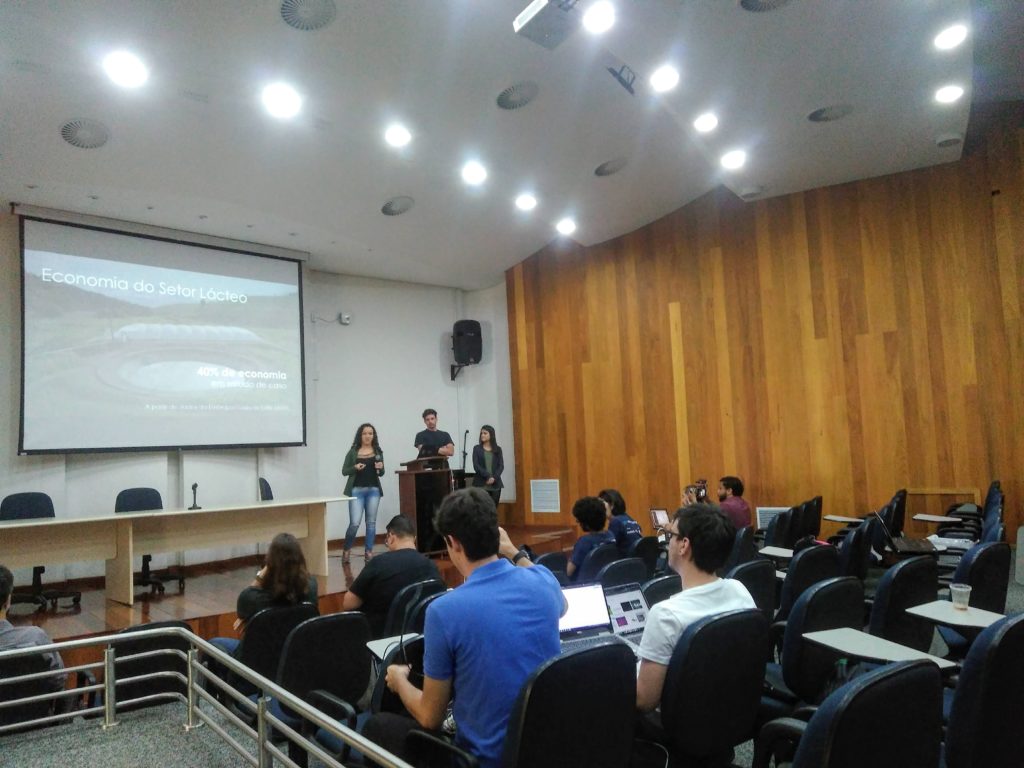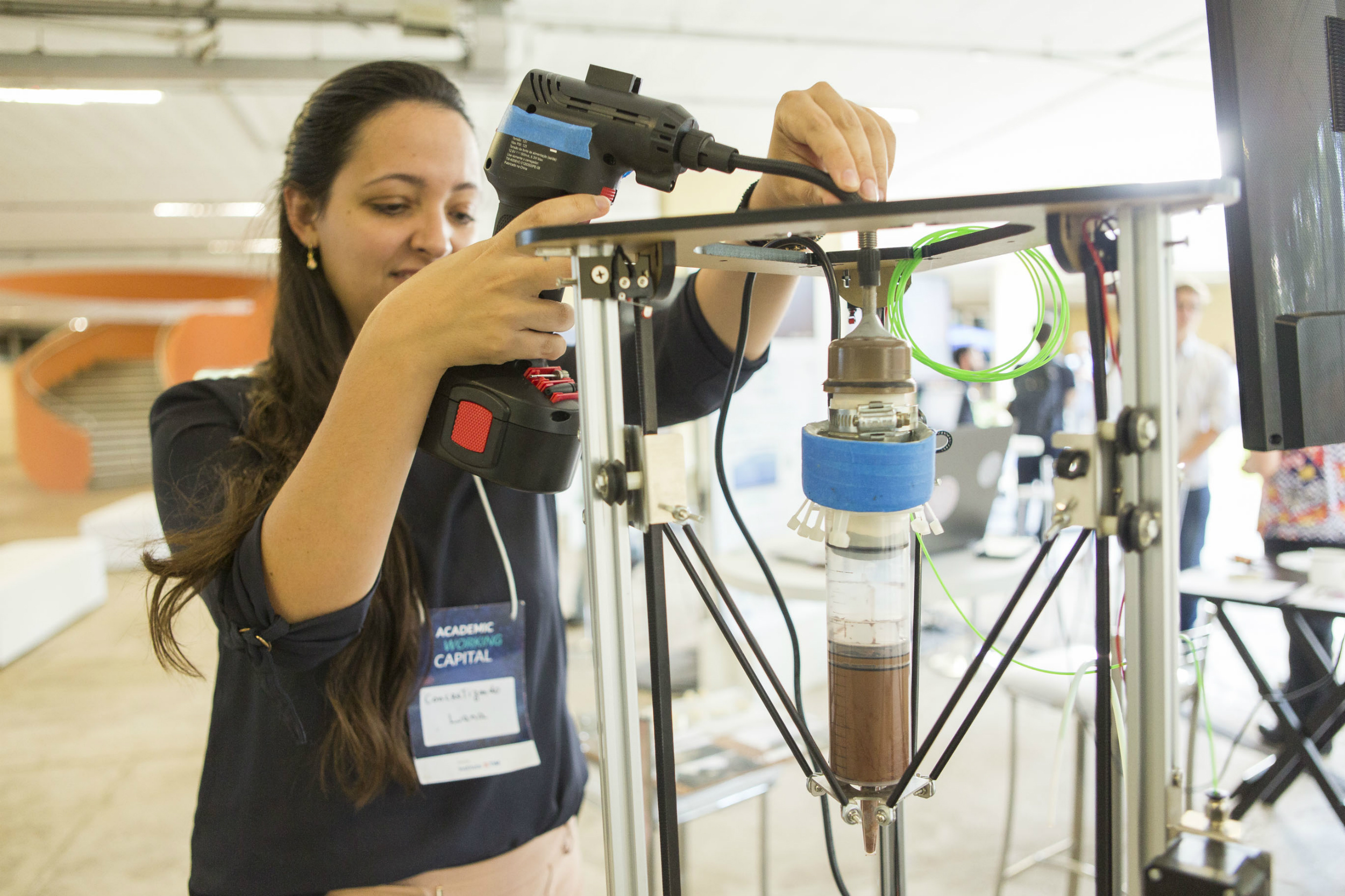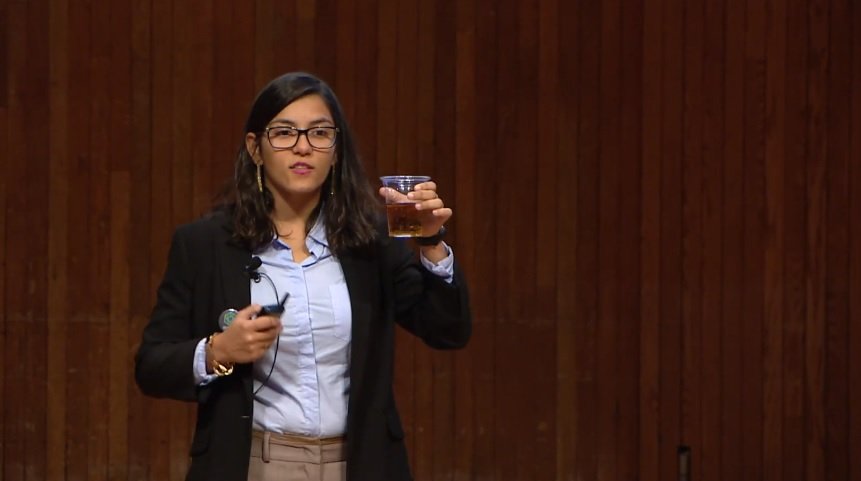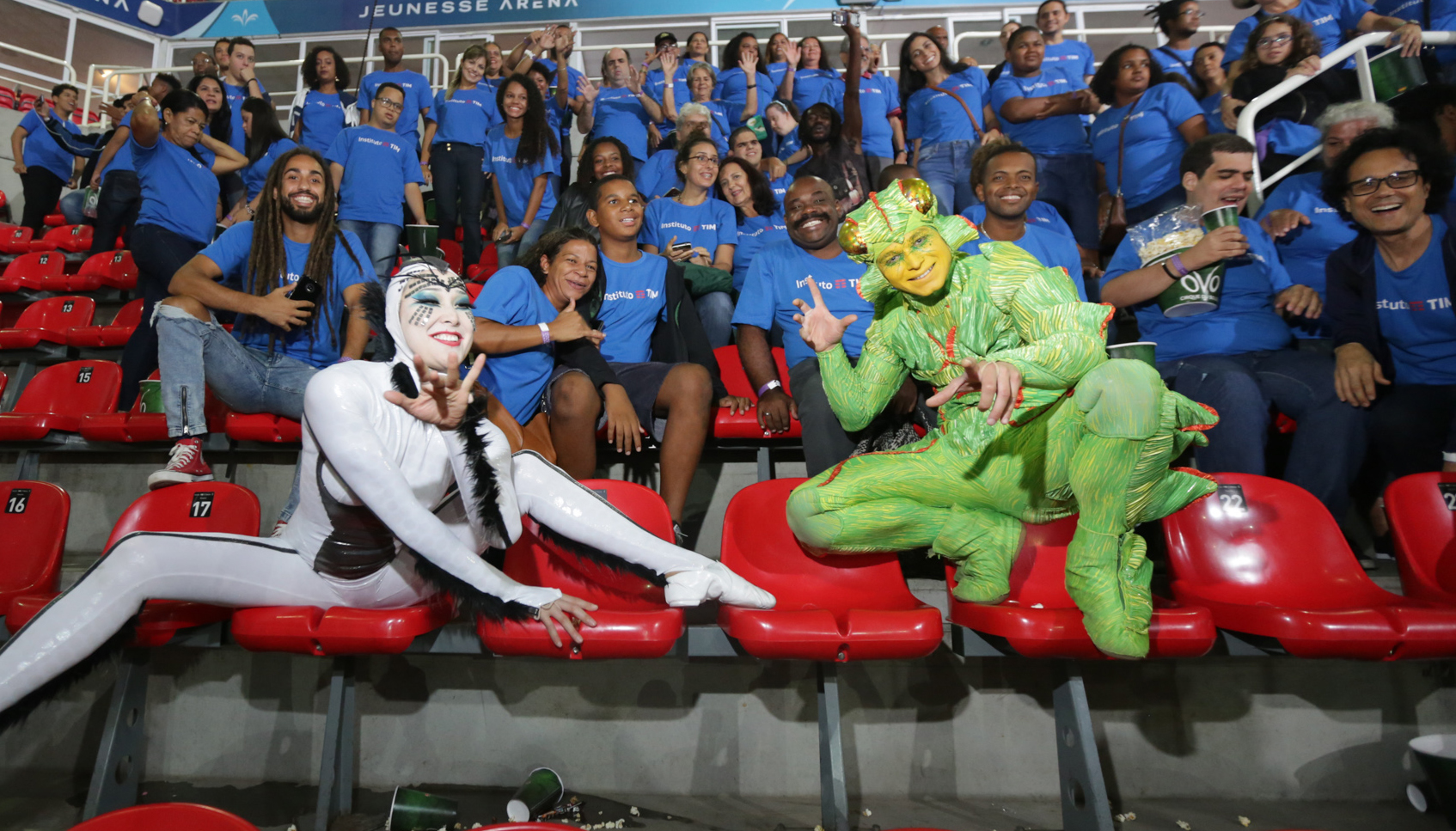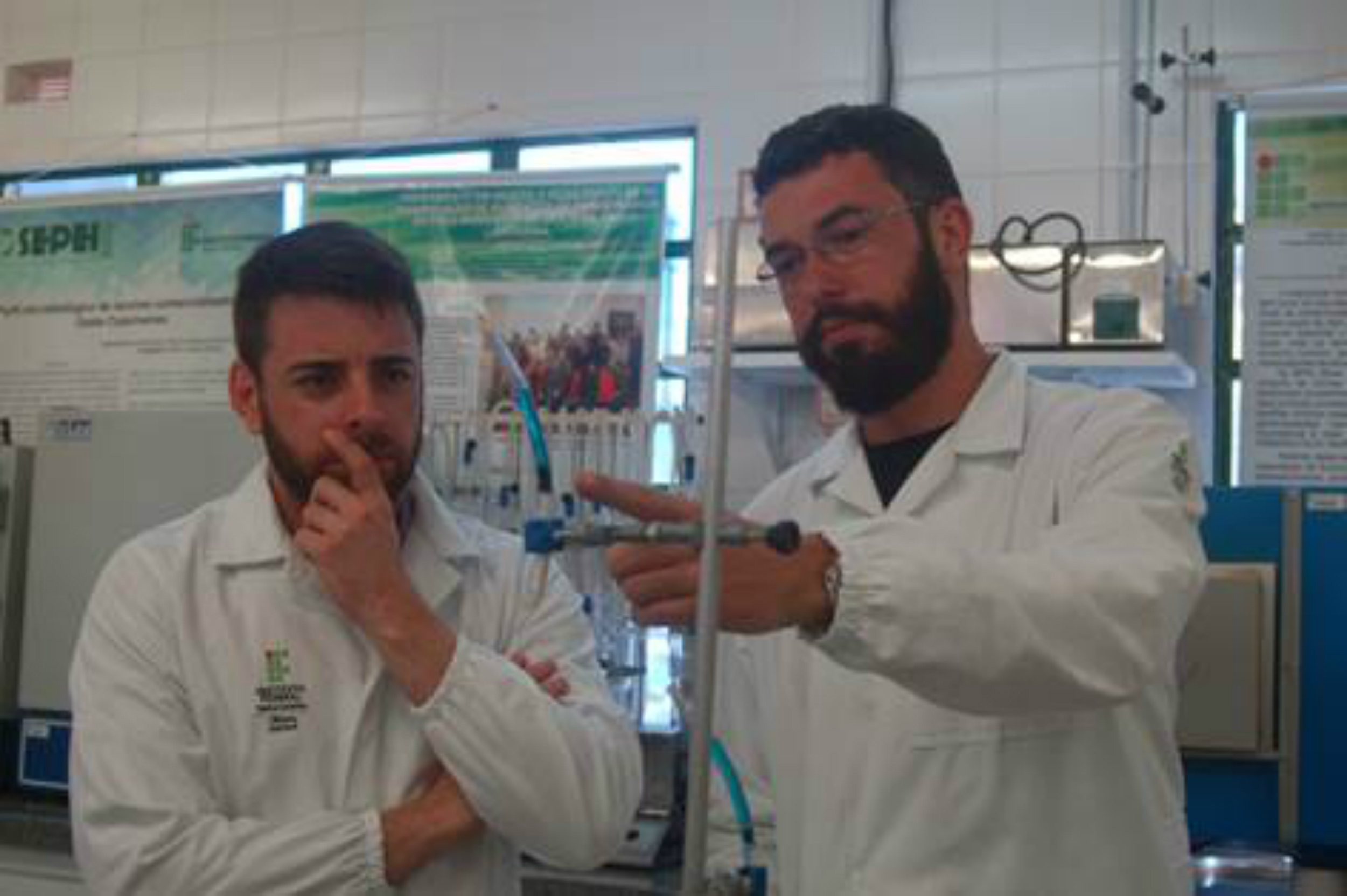
How to make the perfect pitch for investors and the ways to follow after graduation, when you no longer have the support of coaches, were the main subjects of Workshop III of Academic Working Capital 2019. Held at the University of São Paulo, in São Paulo, on December 16 and 17, the event precedes the Investment Fair, scheduled for December 18, and ends the annual cycle of learning, experience sharing, and feedback sessions that characterizes the program.
The theoretical part of the workshop focused on types of funding and the bureaucracies and care involved in setting up a business. AWC Coordinator and Engineering Design master Diogo Dutra has shown that there are other financial options besides an investor to make a company: it can be funded through grants, clients and own resources, stock options, equity, and even awards. Attorney Fernando Racy Markunas, from Fialdini Einsfeld Advogados, showed the laws that regulate startups in Brazil and explored questions about society, hiring and contracts, opening a company, different types of companies, intellectual property, and data protection. “It is important for you to know what you are doing, and part of what you are doing involves law, whether you like it or not,” Fernando summarized.
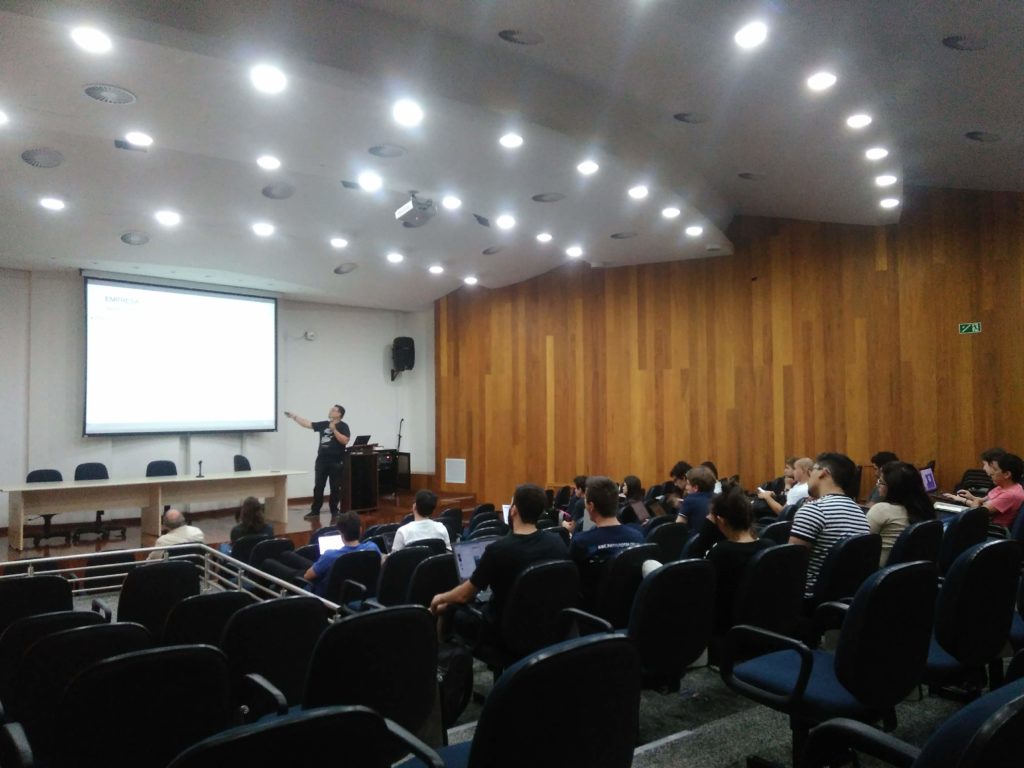
AWC attendees also got to know Squid, a company that connects brands to digital influencers and received its first contribution from the federal government’s Startup Brasil program. “We have always had this question of being a profitable company and being a company that did not depend on other people’s money,” explained civil engineer and founder Carlos Tristan. He spoke of lessons learned over the five years Squid has been operating and the changes the company has undergone as it migrated from e-commerce to communication.
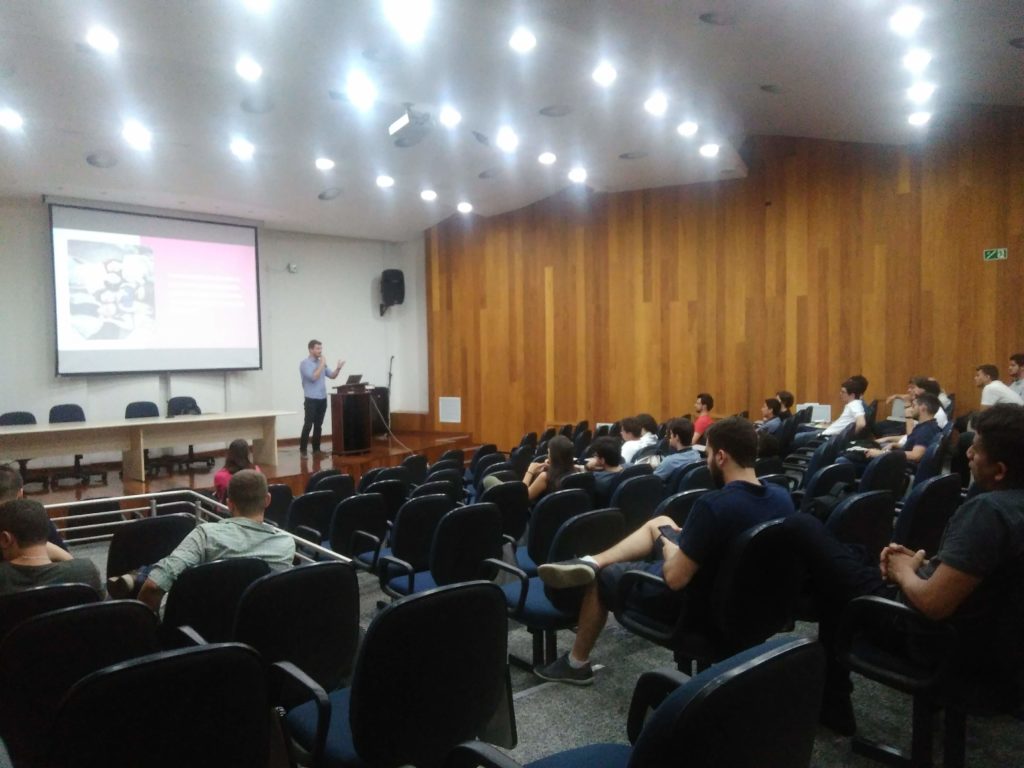
To begin preparing for the Investment Fair, the groups learned about the different types of pitches, their applications, and best practices for setting up the presentation. Coach Artur Tavares told stories of pitches that worked out, showed examples that didn’t work so well and gave tips to assemble the narrative. Coach Rodrigo Franco showed good design and organization practices to guide the presentation assembly and align visual aspects to speech.
With the support of the AWC Team, entrepreneurs worked on their pitches, which should have a maximum of 5 minutes and needed to highlight the value proposition and business model. In alphabetical order, the groups introduced themselves and received feedback from coaches and colleagues. Of the 18 pitches presented, 5 were chosen for the main stage of the Investment Fair – Insite, Beep (Clara), CPS, ThinkMilk, and Gaia. The other groups will make adapted versions of the pitches in their booths.
